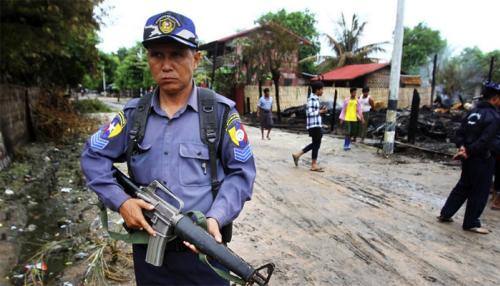- News>
- World
Eight killed in surge of Rakhine violence: Myanmar army

Soldiers have killed several dozen people and arrested scores in their hunt for the attackers, who the government says are radicalised Rohingya militants.
Yangon: Myanmar's military said its troops killed six people and lost two soldiers in clashes with attackers in Rakhine state Saturday, in the latest flare-up of violence in the crisis-hit region.
Northern Rakhine, which is home to the Muslim Rohingya minority and borders Bangladesh, has been under military lockdown ever since surprise raids on border posts left nine police dead last month.
Soldiers have killed several dozen people and arrested scores in their hunt for the attackers, who the government says are radicalised Rohingya militants with links to overseas Islamists.
The crisis and reports of grave rights abuses being carried out in tandem with the security crackdown have piled international pressure on Myanmar's new civilian government and raised questions about its ability to control the army.
Authorities have also heavily restricted access to the area, making it difficult to independently verify government reports or accusations of army abuse.
Today the military said it came under fresh attacks in the border region, first by a mob of some 60 people wielding "small guns and swords".
The clash broke out in the early morning during a "clearance operation" in Ma Yinn Taung village in Maungdaw township, according to an army statement.
"In that fight, six dead bodies of attackers along with a gun which the attackers stole on 9 October were retrieved," it said, adding that one soldier also died while others were wounded.
Troops then followed the attackers to nearby Gwa Zone village where they encountered a 500-strong armed mob, the military said.
"The army fought back but the group of attackers was very large and the army had to use two helicopters," the statement said, adding that one officer was killed in the operation.
The resurgence of violence in western Rakhine has deepened and complicated a crisis that already posed a critical challenge to the new administration led by democracy activist Aung San Suu Kyi.
The state has sizzled with religious tension ever since waves of violence between the majority Buddhist population and the Muslim Rohingya left more than 200 dead in 2012.
More than 100,000 people, mostly Rohingya, were pushed into displacement camps by the bloodshed and have languished there ever since.
